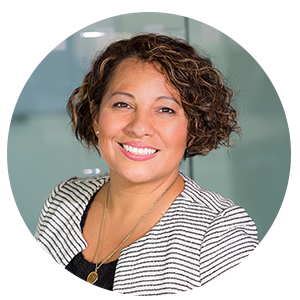Emotional well-being and creativity are closely linked, each influencing the other in important ways. When you're feeling emotionally balanced and positive, you're more likely to tap into your creative potential and come up with innovative ideas. On the other hand, engaging in creative activities can also boost your mood and overall emotional health. Understanding how these two aspects of your life are connected can help you harness this relationship to enhance both your mental well-being and creative output.
In this blog, we will explore how emotional well-being influences creativity and why understanding this connection is crucial for unlocking your full creative potential.
Understanding Emotional Well-being
Emotional well-being means feeling good about yourself and being able to handle stress and challenges effectively. It’s about finding a balance between your happy and not-so-happy feelings, knowing yourself well, and staying positive even when things get tough.
For example, if you’re having a rough day at work, good emotional well-being helps you stay calm and deal with the problem without getting too stressed out. You might use simple techniques like taking deep breaths or doing something you enjoy, like reading or chatting with a friend, to help lift your mood.
To boost your emotional well-being, try doing a few easy things each day. Spend a few minutes relaxing or practicing deep breathing to reduce stress. Make time for activities you love and stay connected with friends and family. These small steps can help you feel better and handle life’s ups and downs more easily.
Impact of Emotional Well-Being on Creativity
Your emotional well-being plays a big role in how creative you can be. When you're feeling happy and calm, it's much easier to come up with new ideas and think outside the box. Think about a time when you were in a good mood — did you notice how easily the ideas flowed and how much more motivated you felt to tackle creative projects?
Being in a positive emotional state helps your brain make connections between different thoughts, leading to more original and innovative ideas. It’s like your mind is more flexible and open to exploring new possibilities when you feel good inside.
On the other hand, when you're feeling stressed or anxious, your creativity can take a hit. It's hard to focus on creating something new when you're worried about something else. Stress can make your brain shift focus from creative thinking to just getting through the moment, making it much harder to find inspiration or think clearly.
Connection Between Emotional Well-being and Creativity
Understanding how emotional well-being influences creativity can shed light on why taking care of your mental state is crucial for creative success. Here are some key points on the connection between emotional well-being and creativity:
1. Emotional Vulnerability and Authentic Creativity:
During times of emotional vulnerability, authentic creativity often emerges in surprising and powerful ways. When you let your guard down, you're more likely to tap into genuine feelings and ideas that might've been stifled by self-doubt or fear of judgment. This authenticity can lead to more compelling and relatable creative work, whether you're writing a novel, composing music, or designing a project.
Emotional vulnerability allows you to explore deeper parts of yourself that are often hidden. Think about the times when you've felt raw and open — those moments likely produced some of your most profound insights. By accepting these feelings, you unlock a wellspring of creativity that's both true and impactful.
For instance, consider a writer who channels their heartbreak into a poignant story. The emotional depth they experience translates into characters and plots that resonate deeply with readers. Similarly, an artist might find their most meaningful work emerges during periods of intense emotion, as their vulnerability pushes them to explore new techniques and subjects.
2. Empowerment Through Creative Achievement:
Experiencing the joy of completing a creative project can greatly improve your emotional well-being. Whether you finish a novel, a painting, or a challenging work presentation, the sense of accomplishment boosts your mood and self-esteem. This feeling of empowerment comes from both the end result and the personal growth you gain along the way.
Facing and overcoming creative challenges helps build resilience. As you solve problems and push through obstacles, you grow more confident in your abilities. This confidence can make it easier to handle stress and uncertainty in other areas of your life. Each creative success shows your capability and determination, reinforcing your emotional strength.
Creative achievements also give you a healthy way to express and understand your emotions. By channeling your feelings into something tangible, you connect more deeply with yourself and your emotions. Empowerment through creative accomplishment is a strong tool for nurturing and maintaining emotional well-being.
3. Inspiration from Emotional Experiences:
In moments of intense emotion, creativity often finds its most profound spark. When you're feeling the full weight of joy, sadness, anger, or love, your brain reaches into places it usually doesn't explore. These powerful emotional states can serve as a wellspring of inspiration. Think about times when you've felt deeply moved by a piece of music or a film; these were likely born from the creator's own emotional experiences.
To harness this, start by tuning into your feelings. Instead of shying away from them, use them as fuel for your creative projects. If you're feeling anxious, channel that energy into writing a gripping story or painting a dynamic scene. If you're happy, let that joy infuse your work with brightness and positivity.
One effective technique is journaling. When you jot down your emotions, you create a treasure trove of raw material. Later, you can revisit these entries to spark new ideas and perspectives. This practice not only helps you understand your emotions but also transforms them into creative assets.
4. Emotional Depth Enriches Creativity:
Your emotional depth doesn't just spark creativity; it enriches it, making your work resonate on a deeper level. When you tap into your emotions, you draw from a well of experiences that add texture and authenticity to your creations.
Whether you're writing a novel, painting, or composing music, your emotional spectrum — joy, sorrow, anger, or love — transforms generic ideas into compelling narratives and evocative imagery.
Think about a time when you felt deeply moved by a piece of art. Chances are, the artist poured their emotional depth into it. This connection between creator and audience happens because genuine emotions convey universal truths. When you allow yourself to feel deeply, you unlock a rich palette of creativity that others can relate to on an emotional level.
Harnessing emotional depth doesn't mean wallowing in feelings. It's about channeling them constructively. For instance, if you're feeling nostalgic, use that emotion to craft a poignant story or a touching melody. Your emotional well-being acts as a bridge, turning abstract thoughts into tangible, relatable art.
5. Chronic Stress and Creative Blocks:
Chronic stress is a major roadblock to creativity, draining the energy you need for fresh ideas and innovative thinking. When stress is constant, it creates mental barriers that can make even simple tasks feel overwhelming. This often leads to creative blocks, where ideas that once flowed freely now seem unreachable, leaving you staring at a blank page or struggling with unfinished projects.
The reason stress has such a strong grip on creativity lies in the brain's prefrontal cortex, which is responsible for generating new ideas and problem-solving. Under stress, this part of the brain is overworked, as it shifts focus from creativity to managing the stress response. As a result, it becomes much harder to think freely, making you feel stuck and unable to break through your creative block.
To overcome this, incorporating stress-relief techniques into your daily life can help restore balance. Mindfulness practices, short breaks, or even light physical activity can reduce stress, allowing your brain to regain its creative power. As your stress levels decrease, you'll find your creativity returning, with ideas and solutions flowing more easily.
6. Creativity as a Reflective Practice:
Reflective practice connects your emotional well-being with your ability to generate creative ideas. By taking time to think about your emotions, thoughts, and experiences, you can uncover deeper layers of creativity that might otherwise stay hidden. This practice helps you understand what’s holding you back and how to move forward.
When you engage in reflective practice, you give yourself permission to pause and critically examine your creative process. This could involve journaling, meditating, or talking through your thoughts with a trusted friend. Instead of waiting passively for inspiration, you actively seek it out and create the mental space needed for it to thrive.
For example, if you’re stuck on a project, try stepping back to reflect on what’s causing the block. Are you anxious about the outcome or feeling pressured by external factors? Identifying these issues can help you address them and find a way forward. Reflective practice creates an environment where creativity and emotional well-being support each other, leading to more meaningful and innovative work.
Conclusion
The link between emotional well-being and creativity can really make a difference in how you approach your creative projects. When you're feeling good emotionally, your mind is clearer, and you’re more likely to come up with fresh ideas. Conversely, diving into creative activities can lift your spirits and boost your mood.
By taking care of your emotional health, you can keep your creative juices flowing and make the most out of your creative efforts. So, pay attention to how you’re feeling and use that to fuel your creativity — your emotional and creative sides are better together.
FAQs
1. How does poor emotional well-being affect problem-solving skills?
Poor emotional well-being can make problem-solving harder by causing distractions and reducing focus. When you're stressed or unhappy, your brain struggles to concentrate on finding solutions.
2. Can creative activities help with emotional regulation?
Yes, engaging in creative activities can help manage emotions by providing an outlet for expression. This can lead to a better mood and more balanced emotional state.
3. How does emotional intelligence contribute to creativity?
Emotional intelligence helps you understand and manage your emotions better. This understanding allows for more nuanced and effective creative expression, as you're more in tune with your own feelings.










